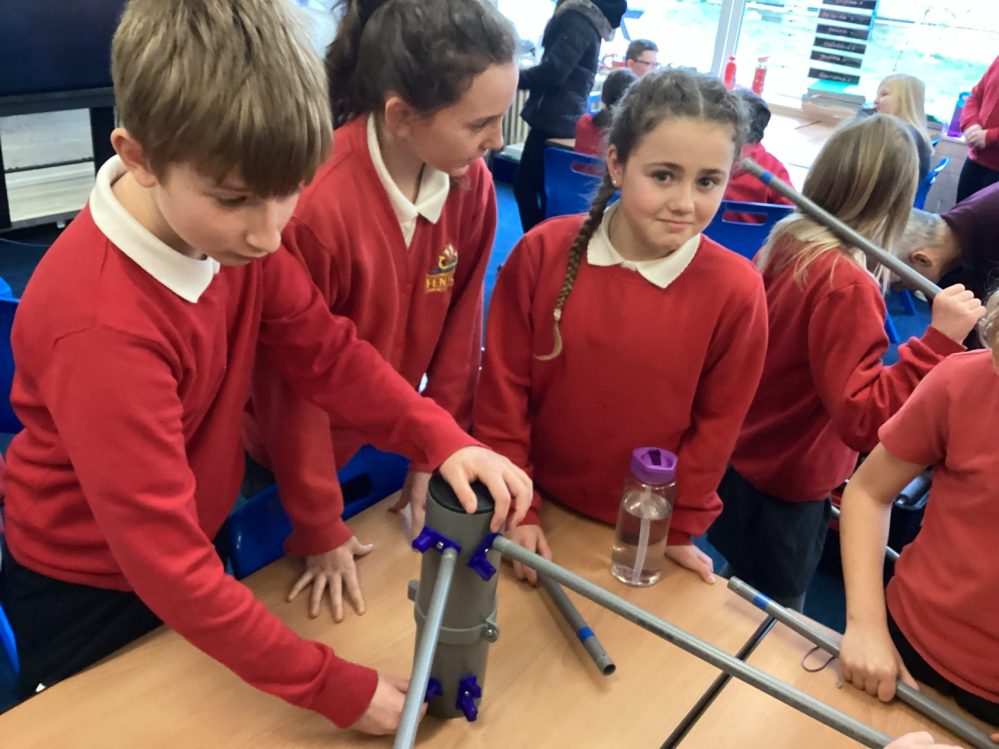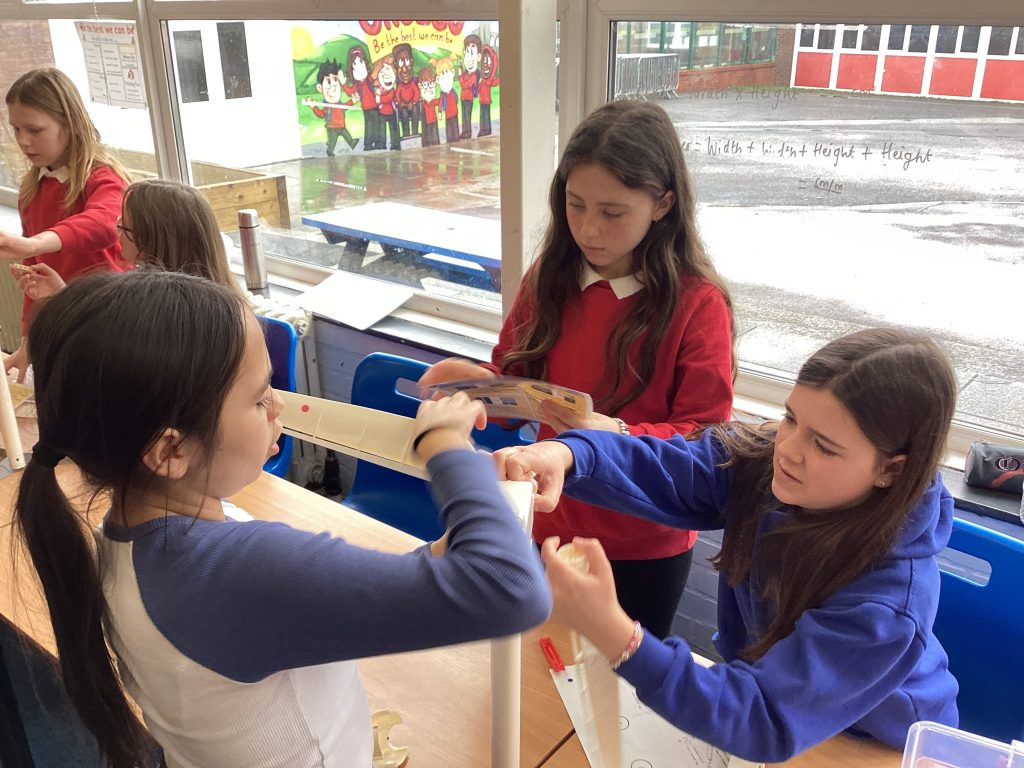Education
Top 5 Ways Robotics is Enhancing Learning in Higher Education

In the university, robotics is no longer a matter of sci-fi conjecture. Still, a mainstream reality makes a difference in how students are taught and prepared for the future workplace. This article will consider the top five ways robotics makes a difference on university campuses. So, how is robotics making university learning more interactive, interdisciplinary, and impactful for today’s students?
1. Hands-On Learning Opportunities
The implementation of robotics technology into the curricula of our higher education has substantially amplified the efficacy of hands-on learning through authentic practical applications of the knowledge learned in the classroom. Robotics technology refers to the design and use of robots, which are automated machines that perform tasks with minimal human input, combining engineering and computer science. In engineering and technology education, for example, students not only familiarise themselves with the theoretical content in fields such as mechanics and electronics but can also experiment with them and design robots based on their knowledge. Through this process, not only can students gain a deeper understanding of the knowledge learned, but their abilities to identify and solve problems are also greatly improved as they can promptly identify and eliminate mistakes in the design processes.
Robotics can stretch student’s programs to the limit as they provide a hands-on, practical approach to improving reasoning and analytical skills for higher education. The coursework can be very time- and effort-consuming when students have an additional workload on their shoulders. In this case, a professional platform providing writing a research paper services can be a great solution. Learners can deal with their assignments more effectively, dedicating sufficient time to different projects and hobbies.
2. Interdisciplinary Approach
The very nature of robotics means that it interconnects multiple fields – engineering, computer science, mathematics, and others – which brings the benefits of interdisciplinarity into play but also inspires students to see the implementation of various disciplines in a robot system: programs written by the computer scientist used in the brain of a robot, at the same time being in interaction with the hardware controlled by an electronic engineer, and all this intertwined with the data analyzed by a statistician. By connecting different fields, robotics helps students acquire versatile competence and cultivates a kind of learning particularly suitable for industries that urgently demand it.
3. Increased Engagement and Motivation
The positive impact of educational robots in academic settings is well-documented, with a meta-analysis revealing a significant improvement in student performance, demonstrated by an effect size of g=0.57. This data shows that robotics improves student engagement and motivation and gives the classroom a sense of excitement and innovation. Learning about and immersing themselves in the expanding field of robotics allows a deeper exposure, especially for those students for whom traditional methods may be more drab and uninteresting. Coupling the curriculum with something that requires hands-on engagement with immediate and visible testable results, it is obvious why learning would be more captivating and meaningful.
4. Preparation for Future Technological Environments
Bill Gates once remarked, “The advance of technology is based on making it fit in so that you don’t really even notice it, so it’s part of everyday life.” This insight aligns seamlessly with using robotics in education, as it subtly yet significantly prepares students for the future. The practical skills learned in robotics classes are helpful not only for positions that already exist but also for adapting to new technologies as they’re introduced and for putting feelers out for jobs that might exist beyond the proverbial horizon – the jobs that lie even beyond the next horizon as the technology develops and evolves. That’s a significant reason for the urgent need for training in today’s rapidly changing technological and employment world.
5. Better Soft Skills
Robotics develops technical skills and the vital soft skills needed for academic and professional lives. Here are four critical soft skills that robotics promotes.
- Cooperation: For each robotics project, students are typically required to work in teams and achieve shared goals, instilling a sense of collaboration.
- Communication: Communication is vital in teams and workplaces, so it must always be clear and concise so that everyone is aware of work ideas and settles essential issues.
- Creative Thinking: The complexity of creative-thinking robotics challenges requires students to be innovative in overcoming obstacles or challenges when presented with a perceived problem with infinite solutions.
- Adaptability: Students have different levels of experience with robotics when they come to class, and every assignment poses new challenges or shifting requirements as their designs take shape.
Developing these practices improves students’ learning and growth and prepares them for the teamwork and volatility they will encounter in their professions.
Shape the Innovators of Tomorrow

Significant changes are taking place in higher education because of robotics, and these changes make university education more interactive, interdisciplinary, and in line with industry needs. Through this exciting emerging field, students are more prepared to work using these technologies when they graduate and learning itself is more exciting and informative.
Author: Ammie Barger
Ammie Barger is an experienced writer of articles about technology in education. She loves learning how technology can transform the field of learning and covers that topic in her work. Her articles focus on educators and students and show them how technology can be used in the academic setting.
Education
Research reveals nearly half of children in Wales had additional learning needs

A NEW study has highlighted the prevalence of additional learning needs, formerly known as special educational needs, among under 16-year-olds in Wales. The findings come with a policy briefing, calling for a robust review of processes used to recognise such issues and more inclusive learning support for all children nationally.
The research and policy reports, led by the University of Bristol and funded by the Nuffield Foundation, found nearly half (47.9%) of children born in 2002/2003 were identified with some form of additional learning needs (ALN) at some point during their schooling. This was shown to have the biggest impact on academic achievement across all Key Stages of their education.
Lead author Dr Cathryn Knight, Senior Lecturer in Psychology of Education at the University of Bristol, said: “Our findings clearly challenge the notion that learning needs only affect a minority of learners. Key common factors increasing the likelihood of being identified with SEN also emerged, emphasising the importance of recognising the child’s environment and understanding their individual situation to effectively support their learning needs.”
Researchers from the University’s School of Education and Swansea University analysed data from more than 200,000 children in Wales, born between 2002 and 2009, to understand the levels of SEN and its impact on academic achievement.
Findings revealed that the earlier the additional needs emerged and were recognised, and the longer their education was spent with these known needs, the less likely they were to meet nationally expected levels of attainment.
Dr Knight said: “Our research suggests the former SEN system in Wales was unable to effectively support students to mitigate the negative impact of SEN on their grades. This underscores the substantial toll of SEN on academic achievement. To improve academic attainment levels in Wales, it is crucial to prioritise effective support for this very large group of learners.”
Learners having free school meals (FSM) throughout their education were found to be four times more likely to be identified with SEN compared to those not in receipt of free meals. Those born in the most deprived neighbourhoods were shown to be even more likely (4.6 times) to be identified with SEN.
The study also showed boys were much (5.5 times) more likely to be identified with SEN than girls. Children with higher school attendance had a lower likelihood of SEN identification and learners born in the summer, so younger in their year group, were three times more likely to be identified with SEN than those born in the autumn.
Dr Knight said: “This raises concerns about the effectiveness of SEN identification processes, particularly given the unexpectedly high number of learners identified with SEN. It suggests a potential issue of over- or under-identification of certain children.”
The main policy recommendations in the report were to prioritise inclusive educational initiatives that recognise and support all children. The substantial impact of SEN on children’s grades, raises questions about how children with learning needs can be supported to show progression within the education system. Therefore, consideration of more inclusive assessment practices is recommended. The report also calls for current methods used to identify learning need to be rigorously reviewed, with a new focus on ensuring accuracy, fairness, and inclusivity.
The research mirrors similar national findings. Evidence from the Education Policy Institute in England also found a high level (40.7%) of SEND (Special Educational Needs and Disability) identification. Other research, published in the British Educational Research Journal, has also shown that children with SEND in England are also far less likely to meet expected learning standards than their peers at Key Stage 1.
Dr Knight said: “We also need longer-term evidence within Wales and across the UK in order to develop a fuller understanding of the challenges. This includes possible systematic issues with how learning needs are recognised and their subsequent impact on attainment.”
Education
School children focus on Pembrokeshire’s renewable energy future

FENTON COMMUNITY PRIMARY SCHOOL welcomed renewable energy experts to help Year 5 and 6 learners broaden their knowledge as part of their Marine Energy Project.
During the summer term Blue Gem Wind, Pembrokeshire Coastal Forum and the Darwin Experience have discussed Pembrokeshire’s importance in the renewable energy sector and low carbon technologies with the school children.
Learners designed and built models of different anchorage structures for offshore turbines, and learnt from the Darwin Centre about the different marine organisms that might colonise them.

They pitched their design ideas, with a combination of class designs being built and deployed at the Marine Energy Test Area (META) in Milford Haven by Pembrokeshire Coastal Forum.
The visits have inspired many new ideas and possibilities for the future of the learners.
Summer Marshall (Year 6) explained: “It was a great opportunity for our designs to be actually made into something for a real-life purpose.”
“If it wasn’t for this project I wouldn’t have learned about the importance of marine habitats and how these are linked to our future,” added TJ Hill (Year 6)
“It is really important because a lot of future jobs will be based around renewable energy and technology,” said Milly Badger (Year 6).
“From having Blue Gem Wind, META and Darwin visit, it’s made me think about a job in renewable energy,” added Oscar Davies (Year 6).
Acting Executive Headteacher Gareth Thomas said: “The project has enabled development of careers and work-related experiences with our learners. Direct industry engagement has been crucial to motivate our learners to think about the future jobs in Pembrokeshire and the life they may lead here.”
Year 5 and 6 teachers Leah Hackett, Matthew Vaughan and Mike Lowde agreed that many of their pupils could work in the renewable industry in future.
“Hopefully, after this, we have a group of enthusiastic pupils who already have a keen understanding of the benefits of renewable energy and the place it holds in Pembrokeshire and the wider world,” they added.
Education
Pupils delight in ice cream treat from Pembrokeshire’s number one van

CHILDREN at Ysgol Caer Elen in Haverfordwest were treated to a delightful surprise on Tuesday when they were all given the opportunity to enjoy ice cream, generously provided by Mr McGeown and his family.
The delicious ice cream, a highlight of the school’s summer celebrations, was not just a treat for the pupils but also a testament to the McGeown family’s commitment to supporting educational projects. The funds raised by the family have been donated to the school, aimed at enhancing various school initiatives.
The joyous event was made even more special by the efforts of volunteers Martin, Sian, Amirah, Jack, and Alyannah, who served the ice cream. Their contribution ensured that the occasion was filled with a wonderful and happy atmosphere.












The school extends its heartfelt thanks to Mr McGeown and his family for their generosity and support. Their donation will play a crucial role in the continued development and success of school projects, benefiting all pupils.
“We are incredibly grateful to Mr McGeown and his family for their kindness and support,” said Mr Dafydd Hughes, the headteacher of Ysgol Caer Elen. “The ice cream treat brought immense joy to the children and added to the spirit of our summer celebrations.”
Ysgol Caer Elen, a pioneering Welsh-medium school catering to students from ages 3 to 16, prides itself on its vibrant community and commitment to high-quality education in Pembrokeshire. The school’s ethos centres on creating a caring and inclusive environment where every pupil is encouraged to achieve their best and develop their skills for the 21st century
The community looks forward to seeing the positive impact of the McGeown family’s contribution, as the school continues to thrive with the support of dedicated and caring individuals.
-

 Crime4 days ago
Crime4 days agoHaverfordwest man admits having nearly 1000 child and animal images
-

 Education5 days ago
Education5 days agoMilford Tesco worker achieves Oxford dream and lands top legal job
-

 Crime4 days ago
Crime4 days agoYouth set to appear in court over serious sexual offences
-

 Crime5 days ago
Crime5 days agoPolice investigating after man injured during altercation in cemetery
-

 Education5 days ago
Education5 days agoPupils delight in ice cream treat from Pembrokeshire’s number one van
-

 Crime4 days ago
Crime4 days agoTown centre ‘stinking of skunk’ as police strip cannabis farm
-

 Crime3 days ago
Crime3 days agoFag-butt police court summonses spark debate in Pembrokeshire
-

 News7 days ago
News7 days agoProposal to give firefighters a council tax discount to go to Cabinet



















